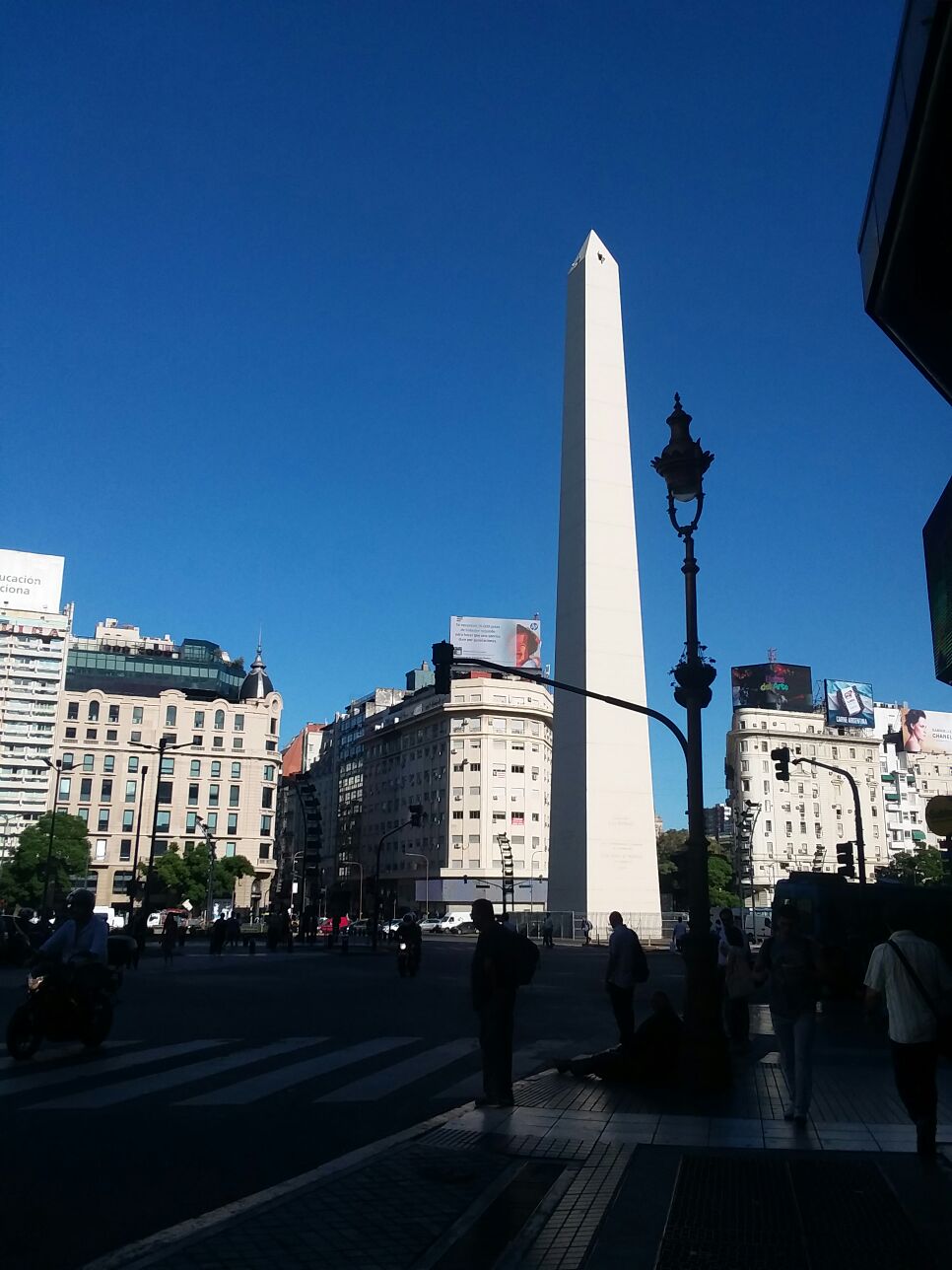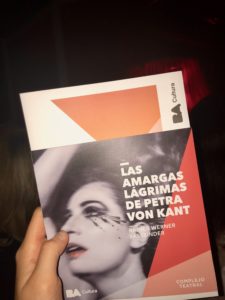How Immersing Myself in the Buenos Aires Theatre Scene Made My Abroad Experience Special


Buenos Aires is a city overflowing with an abundance of cultural, political, and artistic expression. One of my absolute favorite things about Argentina’s capital is not only the enormous quantity of artists– performance artists, visual artists, musical artists, and more– who inhabit the city and make creation commonplace, but the sense of true appreciation for the arts felt by nearly everyone I encountered there. People support the arts. They show up. They want to engage, learn, and feel.
This city was the perfect place for me to dive into my love for theatre. Buenos Aires, though often forgotten within the US’s Euro-centric outlook, is a major theatrical hub not only of South America, but of the world.
Argentine theatre’s innovation, playfulness, and social impact are worthy of admiration and appreciation, and I am so very happy I got to experience this for myself during my time abroad with IFSA.
Clowning Around
My favorite class was for sure Clown: Leqoq Technique at Universidad del Salvador. Because I was in the Argentine Universities program, I was able to enroll directly in classes with Argentines, and this one was an insane challenge, but also one of the best parts of my study abroad experience. I took the class upon recommendation from my friend who studied in BA the year before, and I was very glad I followed her advice.
Clowning, I learned, is more than slapping on a red nose and being silly (although that’s a large part of it– not gonna lie). It requires precise timing, complete commitment to physicality, and a quick wit to improvise.
I am truly terrible at improv, so put it in another language and, well, it was a challenge to say the least. I felt a bit inept the first few weeks, but eventually I found my stride, and I was able to gain confidence in my acting and language abilities, let loose and have fun, and build connections with my Argentine classmates. The class was a wild whirlwind of an experience, but I’m so glad I put myself out there and tried something new.
An Academic Outlook
Argentine theatre is unconventional, shocking, and active. It grabs the audience, confronting them with reality. Political theatre is an integral part of Argentine history. Theatrical movements occurred after the dictatorship which highlighted the painful socio-political realities faced by countless citizens.
Artistic expression changed the shape of the country in many ways, and this drive to make an impact through art has persisted in Argentina until present day. This was what I learned from my study of contemporary theatre in my Advanced Spanish Language and Culture class.
This class was mandatory for students in my program, but each student was able to select from a few different topics as an additional focus within the class, so I chose the focus of Contemporary Theatre.
While the class centered mainly on language learning, grammar, and literature analysis, the parts in which we discussed theatre allowed me to expand my knowledge of the Argentine style in a meaningful way.
Our culminating project, an essay and presentation on a theatre-focused topic of our choice, allowed me to explore political theatre in a deeper way, as I wrote about Augusto Boal’s impact on Argentine theatre in the years leading up to the dictatorship. I was academically and personally invested in the project, and I learned so much through my research!

Taking It All In
Avenida Corrientes is known as “the Broadway of Buenos Aires,” and this central street is lined with Broadway-like offerings of big names and shining lights, however, this is not the core of Buenos Aires’s theatre scene by any means.
Aside from the more commercialized theaters on Corrientes, the city’s government-sponsored theatres produce unique and impactful theatrical work on a large scale. A stand-out from my theatre-going experience at one of these institutions was Las Amárgas Lagrimas de Petra Von Kant, a play put on by Teatro San Martin.
Behind a translucent scrim enveloping the stage, the audience witnessed an intensely emotional relationship unfold between a renowned fashion designer and her protege model and the bitter collapse when the relationship ended. The show was so intensely human and utterly captivating.
This play was one of three I saw for free through an excursion provided by IFSA! Mario, the program’s director, and his partner, Sergio, accompanied us to the show and then took us out for pizza afterwards for an engaging and thought-provoking conversation about the play.
I was certainly on a budget while abroad, but even without IFSA’s help, going to see theatre didn’t break the bank. As a result of the porteños’ love for the arts, the government values theatre as well, so going to see it is also far more accessible financially than in the United States.
Theatre is relatively way cheaper (usually somewhere between AR $200-500, or around $5-15 in American dollars) and way less commercialized than US theatre. Websites like Complejo Teatral and Alternativa Teatral offer great discounts and are really useful resources for finding tickets to performances of all kinds!
The lessened blow of commercialization allows independent theatre to shine as well. As I said before, the city has a long-standing and political history of independent theatre, and today in BA, independent theatre is the most prevalent and often the most experimental and interesting.
Many of these shows are produced in tiny theaters, or not even in theaters, for example an innovative, bold, and hilarious production of Las de Barranco I saw in a small room off the side of a bar. The “theater” fit less than 20 audience members per performance, and the room was made even smaller by a huge chandelier shattered in the middle of the floor.
Though the three actresses spoke rapidly, and I, with my definitely-not-perfect Spanish capabilities often could not understand them, I was mesmerized by the show because these women were comic geniuses who made this classic piece not only extremely funny, but also layered and thought-provoking.
I saw tons of really interesting, often really weird theatre in Buenos Aires, and I was in my element, loving every moment of absorbing all of it! Buenos Aires fulfilled my craving for theatre that pushes limits, and I still find myself thinking about all I was taught in class and viewed in the city as I partake in theatre classes back at my home university. Learning about and seeing such interesting work in Argentina instilled a creative drive in me that I’m sure I’ll hold with me forever.
Rachel B. | Theatre and Media & Communications double major with a minor in Spanish | Muhlenberg College | IFSA Argentine Universities Program | Spring 2018